Missionaries must learn the language of the people they are ministering to!
When my husband arrived in South Africa in 2004 to work in the villages of the Tsonga people (before we were married), he knew no other missionaries working with the Tsonga people who could teach him the language. There was no language school or Rosetta Stone digital course.
Thankfully, South Africa's national language is English, so several of the nationals had a working grasp of English, some better than others. Seth asked a national pastor that was his sole link to the village to teach him Tsonga. This worked--like a broken wheel--bumpy and uncomfortable for both.
The national pastor, although fluent of course in his native tongue, did not know how to explain the rules and logic of Tsonga to a non-native learner. Would you know how to explain the logic of English to an ESL speaker? And Seth did not know at the time how to teach another person to teach him the language. (Now we have a much better idea of how to tutor someone to tutor us!) Eventually in frustration, the pastor explained that Tsonga was like Greek--no rules, see? Okay, so Seth was back on his own.
Again thankfully, those stronger and better than us had gone before. Swiss missionaries translated the entire Bible into Tsonga in 1907, and so Seth had a Bible and a dictionary in Tsonga, which helped immensely.
My favorite missionary heroes are those linguists who pull a language out of the air and put it into writing for the first time--who labor for years to put the Bible into someone else's language. How can we measure the worth of those who have gone before us making our work so much easier? My eyes teared up recently reading a book for children about missionary translation work called God Speaks Numanggang, by missionary-turned-homeschool-curriculum-provider David Hazell. Frontline missionaries who sweat to translate the Bible are heroes. Praise them with great praise!
So Seth read through Romans and other books of the Bible verse by verse with teen boys, trying to match his accent to their tone. But he still didn't understand the structure of the language.
Well into his first year, he received a tip from an Afrikaner (white South Africans--another thing to be thankful for in this country!) about another Afrikaner who worked for the South African Bible Society for years, mainly in the Venda language, another language prevalent in the villages around us. This man helped to translate the second version of the Venda Bible. He could even preach in Venda. Seth got his contact details and went to visit him.
This was the game-changer. In order to learn the language, we often need help from those who have already done it! This man told Seth of a little grammar book that the old Swiss missionaries had written called Everyday Tsonga, which Seth could purchase at a little Indian shop in a nearby town.
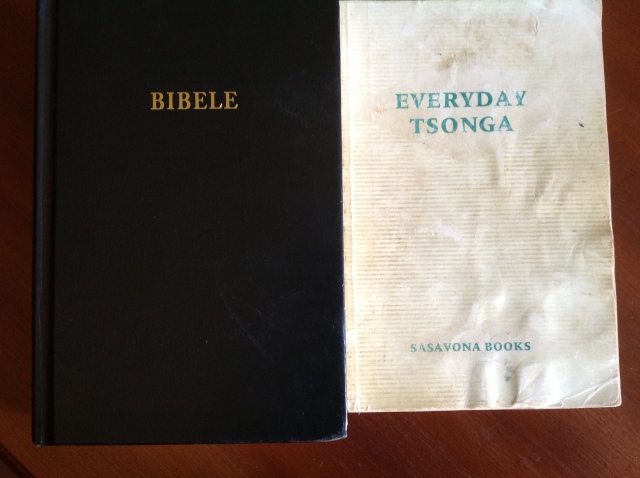
Seth did that immediately, and it opened up to him the structure of the sub-Saharan languages--the African languages south of the Saharan desert. Lesson 7--oh how we praise God for it! It's called "Classes of Nouns and Their Prefixes." Exciting, huh? :)
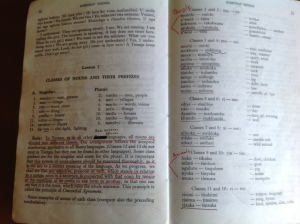 Each
lesson had a grammatical term with a "rule" listed underneath. Yes.
Every language has rules. :) Here's how lesson 7's rule began: "In
Tsonga...all nouns are divided into different classes....It is important
that this system of noun-classes should be mastered thoroughly, as it
is the key to a correct speaking of the language. As we progress, we
shall see that any adjective, pronoun, or verb, which stands in relation
to a certain noun in a sentence, is connected with that noun by means
of the repetition of its prefix in one form or another; so that one can
say that it is the noun, which rules the whole sentence." The lesson goes on to give examples.
Each
lesson had a grammatical term with a "rule" listed underneath. Yes.
Every language has rules. :) Here's how lesson 7's rule began: "In
Tsonga...all nouns are divided into different classes....It is important
that this system of noun-classes should be mastered thoroughly, as it
is the key to a correct speaking of the language. As we progress, we
shall see that any adjective, pronoun, or verb, which stands in relation
to a certain noun in a sentence, is connected with that noun by means
of the repetition of its prefix in one form or another; so that one can
say that it is the noun, which rules the whole sentence." The lesson goes on to give examples.Oh, sweet relief! To our English minds, the verb really rules the sentence. We had no concept for nouns ruling the sentence. But African languages are riddled with tiny little words called "concords" that connect subjects to verbs, get attached to adjectives, and act as the pronoun. If you don't know the concordial system, you can't learn the language!
For example:
In English, we would say, "The bread is good." But in Tsonga, they say, "The bread it is good." And the "it" changes depending on what the subject is. "It" also changes for adjectives like "big" or "small."
Before this grammar book, Seth could not figure out the rhyme or reason for all of these little words throughout the Tsonga language. He would try one version of "it," only to be told that for "bread" it was "xi." So then he would apply "xi" to a person or a table, only to be told that it was "u" or "ri" respectively. He was constantly guessing wrong and didn't know what all those little words meant to the language. It was utterly confusing. Now it seems so obvious to us--now that we have the key!
Since then, we have both learned Tsonga (almost fluently) and bits of Venda (which I have forgotten, but Seth can speak passingly), and now Seth is trying to pick up bits of Shona in order to reach some of the Zimbabweans who have flooded our province of South Africa. Each succeeding African language is easier to learn after jumping the hurdle of the first one.
If you look back on your life, I'm sure you have your own stories of God's providence--literally, His "seeing before." How we learned Tsonga is one story in which we bless God for His providence--His "seeing before" in providing those clever Swiss missionaries to translate the Bible, publish a Tsonga grammar book (in English!), and guiding our steps to meet the people who would introduce us to the grammar.
And now we have begun on our journey to being a linguist--one of the most important jobs of a missionary!
How did you learn the language?
More to come...

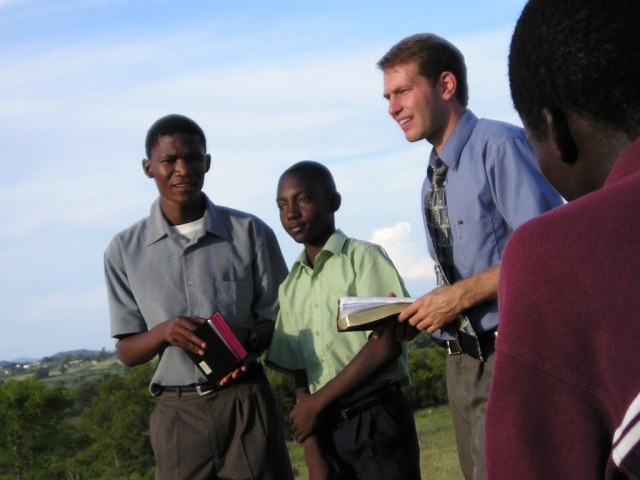
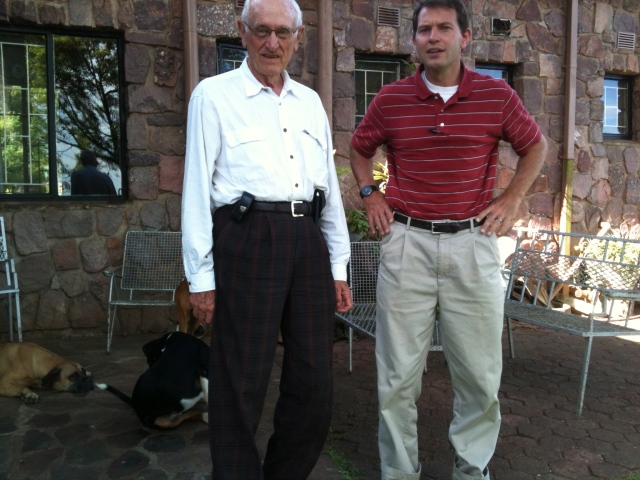
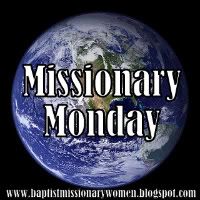
Wow! Tsonga grammar and structure sounds just like Swahili with different words, of course. We had an excellent Swahili teacher for which I am very thankful. It really really helps to know the language of the people even if they have a working knowledge of English. When you learn the language of their hearts, it does open their hearts to you, and it opens all kinds of doors too.
ReplyDeleteAmy, this is super interesting. We have some Fang speakers in our church. They're teaching me phrases. It all sounds like vowels, and I have no idea what I'm saying. It's interesting to hear they are built on nouns and not verbs. That explains why, in Spanish, they have such a hard time including the verbs! Nice to know a little bit. As you said, we owe a huge debt to those who went before and learned the language so very well. What a blessing! I always tell people I'll speak perfect Spanish in heaven. Until then, we'll continue to listen and learn.
ReplyDeleteJessi, yes! Kiswahili is a sub-Saharan language and is similar in structure to Xitsonga. Lou Ann, yes, I will probably never get perfectly fluent. :) As you said, we'll be perfect at it in heaven, and as my husband says, there will be no need for missions in heaven!
ReplyDeleteVery Interesting! When my husband first started studying Greenlandic there was nothing in English to teach him the language. So, he translated a book from Danish to English and used that to study Greenlandic. He also took a few courses (in Danish) to learn Greenlandic. Two languages for the price of one! Now, there is a DVD course offered in English to teach Greenlandic for which I am very thankful! Language learning is a never ending process. Something always happens to keep me humble :-)
ReplyDeleteAmy, this is so interesting. We now have the CD program you told me about. Going into Mozambique this month I have been able to pick up on what people are talking about. Little by little we are getting better.
ReplyDelete